Background
Raleigh Mongolia’s first ever winter operation to collect Pine seeds was successfully organized, relying on solid cooperation with ИХ ХАЙЛАНТАЙ СЭЛЭНГЭБҮРЭН , the local cooperative of Selenge soum of Bulgan aimag. We are happy to contribute to the “One Billion Tree by 2030” nation wide tree planting campaign with our initiative. The seeds will be planted in local tree nurseries this spring.
The operation is part of Raleigh International’s Action Not Excuses campaign and Raleigh Mongolia’s Urban Nomads project. Urban Nomads is a project aimed at developing green businesses and eco-friendly and healthy lifestyles in the Mongolian countryside, therefore reducing the rural to urban migration, which is a direct driver in Mongolia’s air and soil pollution.
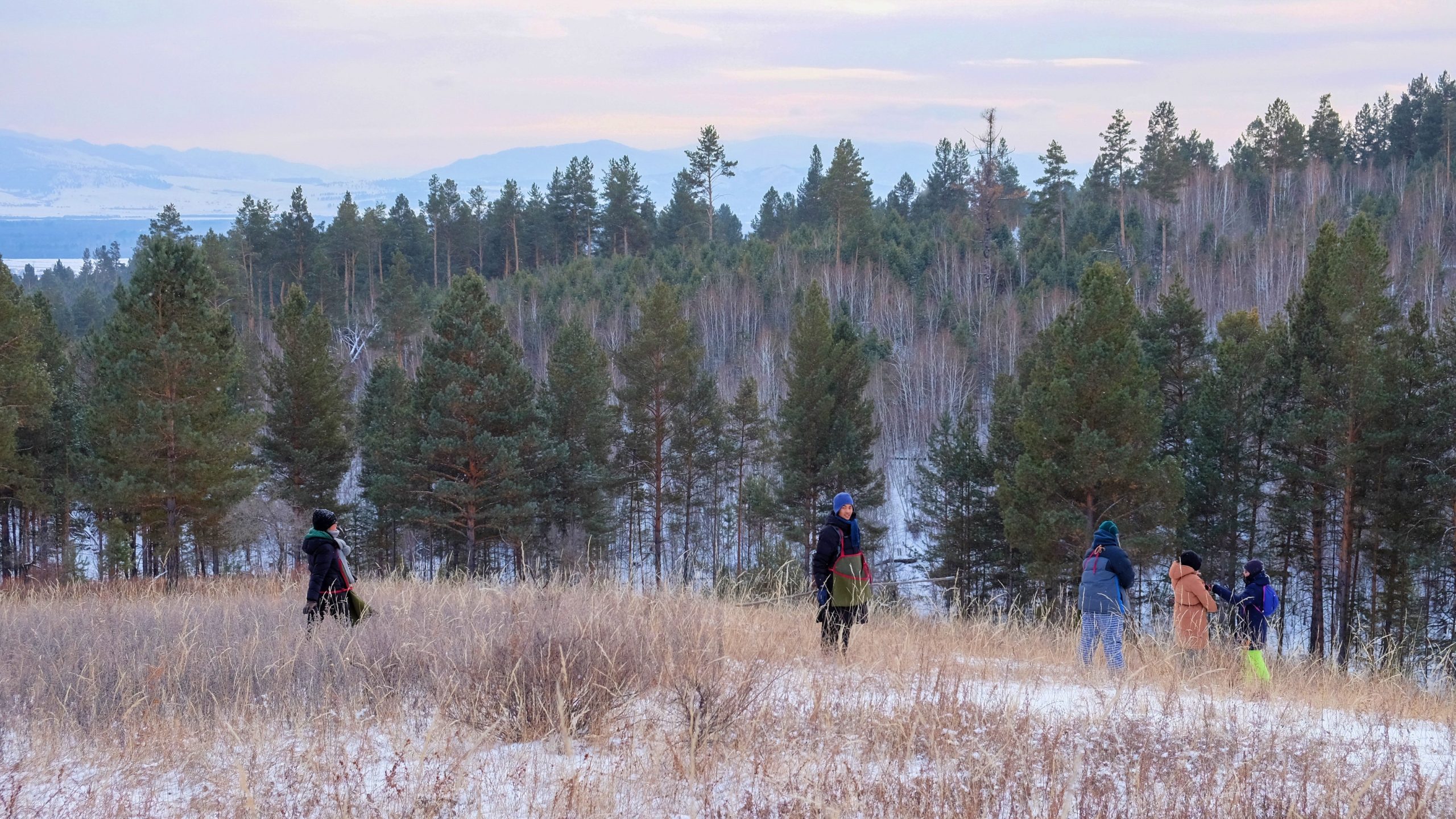
Raleigh Mongolia volunteers looking for tree seedlings in the winter forest
As reported in the Third National Communication of Mongolia to UN, Mongolia experienced an increase of 2.24 °C between 1940–2015, which is more than 2 times the global average, while annual precipitation decreased by 7% over the past 76 years , resulting in drought, desertification and deforestation. As we can see, our country is extremely vulnerable to climate change, not only because of our arid, dry climate, but also due to our activities that further exacerbate the impacts of climate change, such as mining, increasing livestock and the consequent overgrazing.
Which is why many young people are taking action to combat the impacts of climate change, and what better way to do so than to plant more trees? Trees are a natural carbon capturers who can keep the climate cool by intaking greenhouse gas in the air. They also provide moisture to the soil and increase biodiversity in the surrounding area.
The Operation
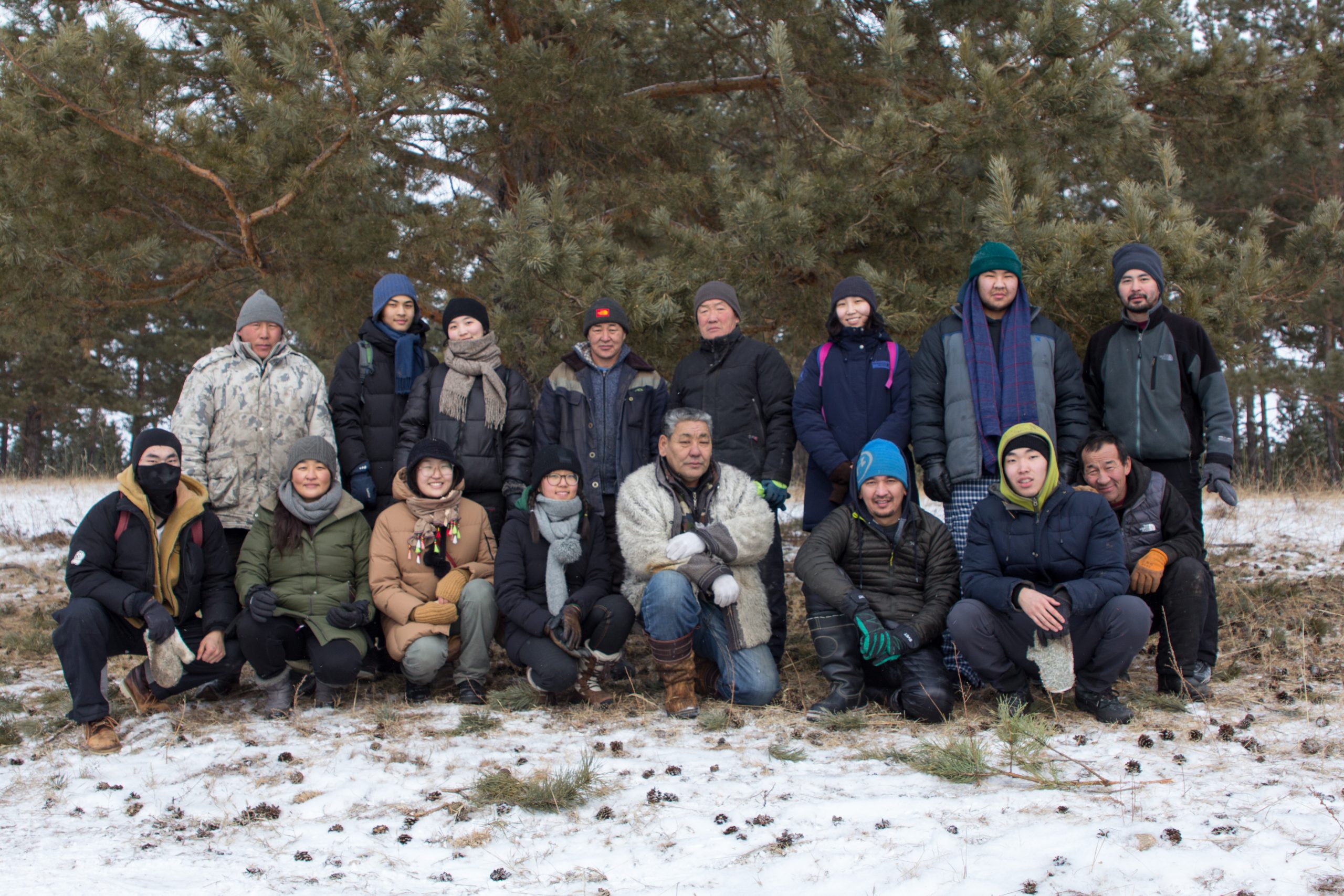
Raleigh Mongolia volunteers and staff members with local Forest Community
With the help of the local Forest Community members, we were able to collect approximately 30 kg of pine cones. Members of the local Forest Community provided our volunteers with information on how to identify the best pine cones in the forest, where to find them and how to collect them using the tools that they’ve made themselves.
One cone produces about two seeds beneath each scale. The cones we collected would be set out to dry under the sun, and the warm weather would make the cones pop, spilling out the seeds in the cones, which then would be harvested and planted in spring time.
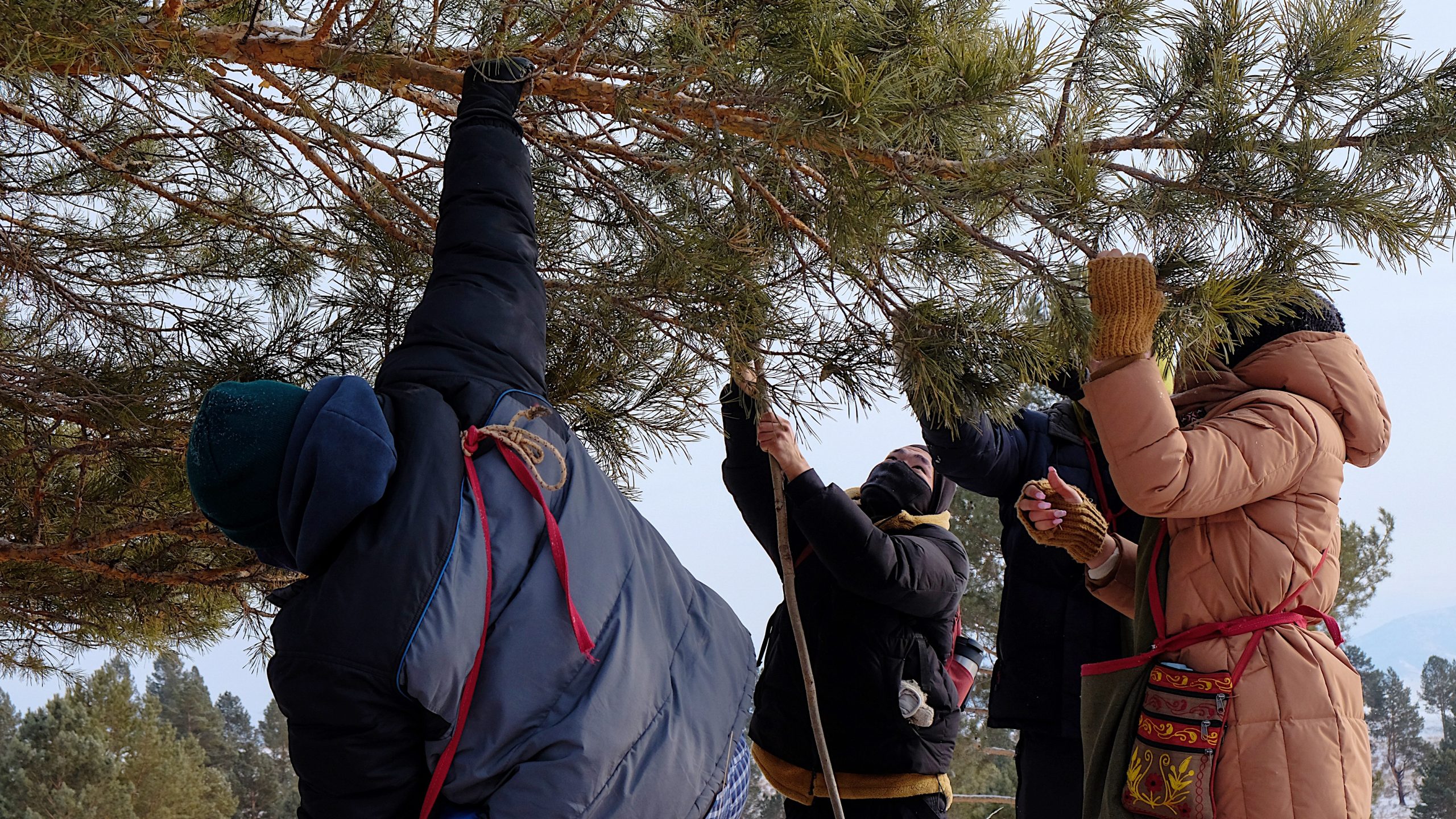
Volunteers picking pine cones from the tree
According to the local Forest Community, this year wasn’t a particularly bountiful year, therefore, our volunteers went to multiple different batches of forests in a day to find some with the most cones. In some areas, volunteers had to hike in the snow for an hour and find no tree worth collecting cones for. The best way to collect seeds, as advised by the locals, is to identify one or two trees with the most cones, and focus on getting as many cones as possible from them.
Pine cone collecting is not an easy job. Most of the bigger pine cones are so high-up the tree that you can’t reach it even with your “stick,” and some of the branches need to be lowered down to collect the pine cones, which requires caution and skill, so as not to break the branch and damage the tree.
Aside from collecting pine cones, our volunteers, most of who were involved in the Summer Operation Amar Sain 2021, have also visited the two composting toilet prototypes they’ve built last summer, and received feedback and suggestion to improve from the local families. With such feedbacks, Urban Nomads would be able to perfect the toilet prototype to fully adapt to the local environmental and social challenges.
The Volunteers
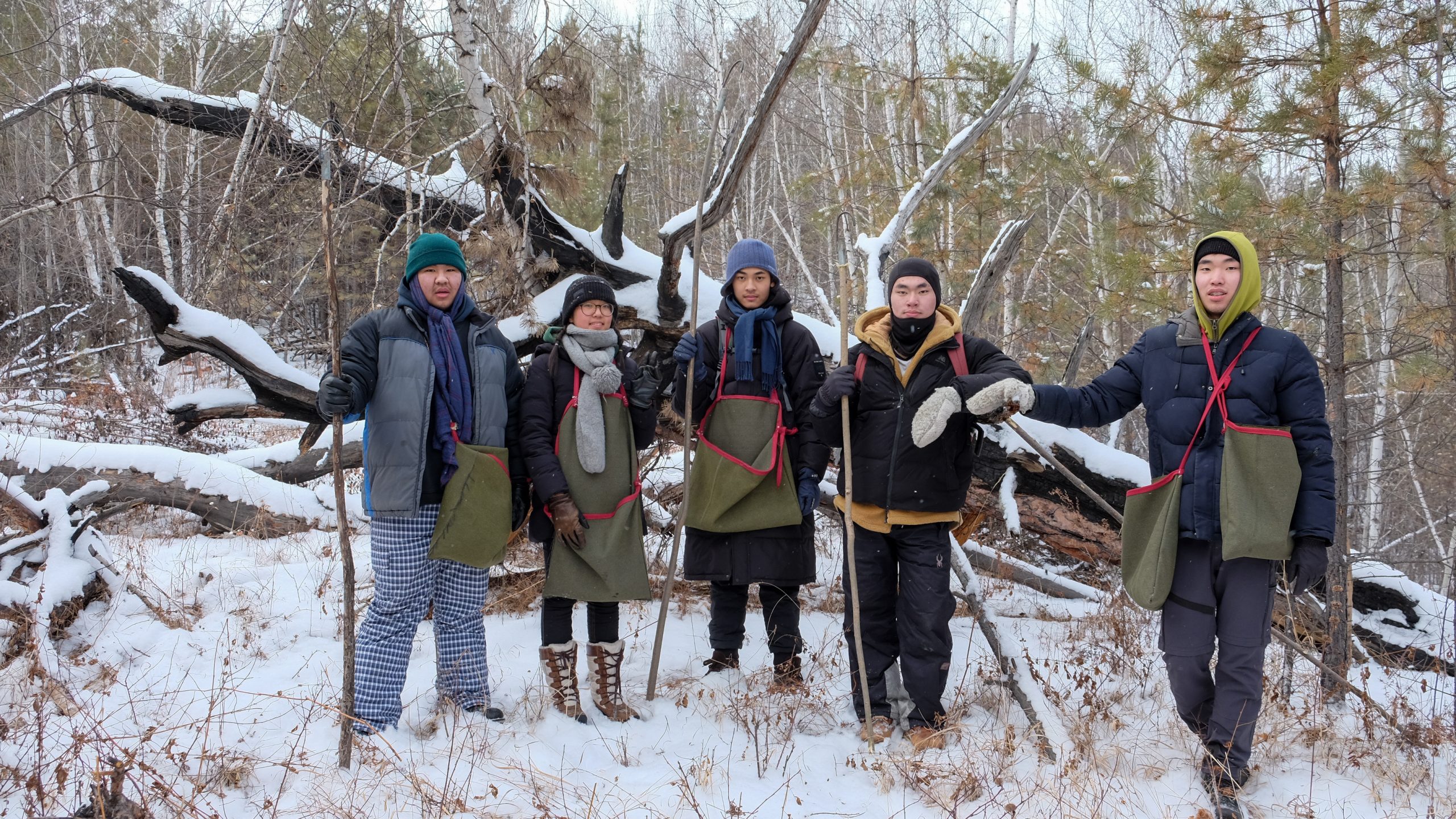
Despite the hardship, the cold weather and the face full of snow—the snow collected on the tree branch tend to get dumped on your face when you pull the branch in—our volunteers were cheerful and energetic throughout the operation. Many of them cited fresh air and the beauty of Mongolian landscape in winter as a highlight for their first day.
 Winter landscape in Selenge-Buren Soum of Bulgan Province, Mongolia
Winter landscape in Selenge-Buren Soum of Bulgan Province, Mongolia
 As it is with all expeditions, life in our little campsite was full of challenges, laughter and good times. For the duration of just 3 full days, our volunteers have lost two-thirds of our meal (culprit: local dog), broke 1 child snow sled due to excitement, hiked more than 20 km daily, gained our lost meal and many more from our friendly neighbor, learnt much about tree nurseries and collecting pine cones, and of course, made many friends with whom they share the same interests and the same passion.
As it is with all expeditions, life in our little campsite was full of challenges, laughter and good times. For the duration of just 3 full days, our volunteers have lost two-thirds of our meal (culprit: local dog), broke 1 child snow sled due to excitement, hiked more than 20 km daily, gained our lost meal and many more from our friendly neighbor, learnt much about tree nurseries and collecting pine cones, and of course, made many friends with whom they share the same interests and the same passion.
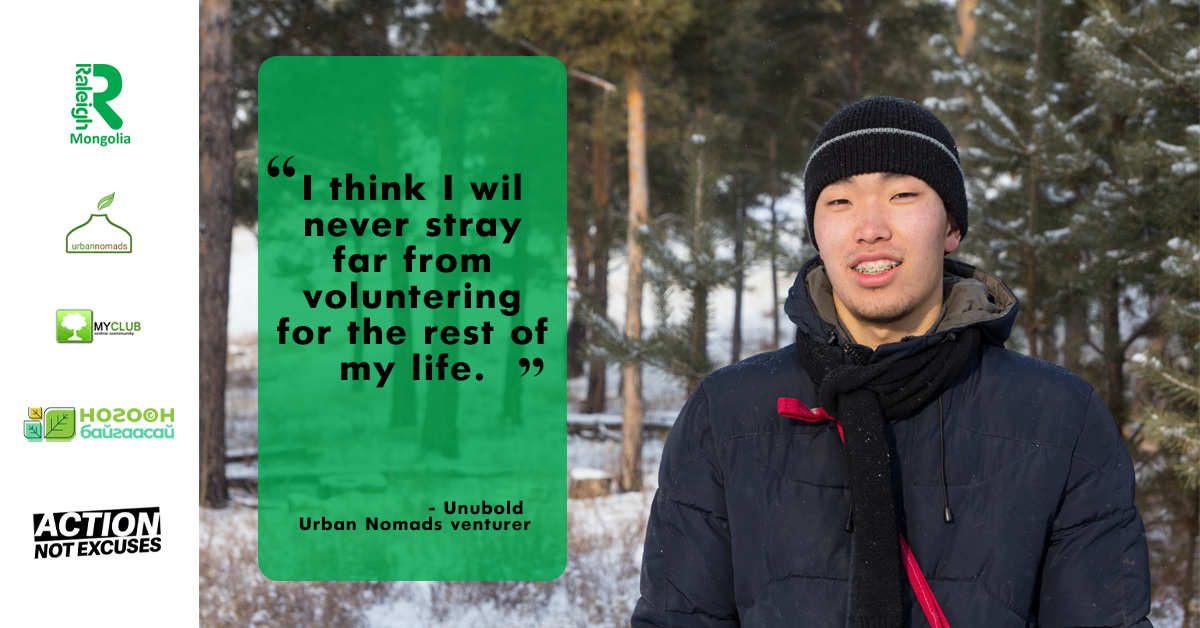
The most important goal of Urban Nomads is the volunteers themselves. We want our volunteers to see, in doing physical work and attending workshops, the balance between development and environment, urbanity and nomadism, a modern lifestyle and a healthy one. It’s very encouraging to see our volunteers connect with like-minded peers and establish their own communities and friendship through Raleigh Mongolia expedition and learn to care for themselves, the environment, and the people.
Volunteer life is to find yourself, and to be found by others who would stand beside you while you get face full of snow for the greater cause!
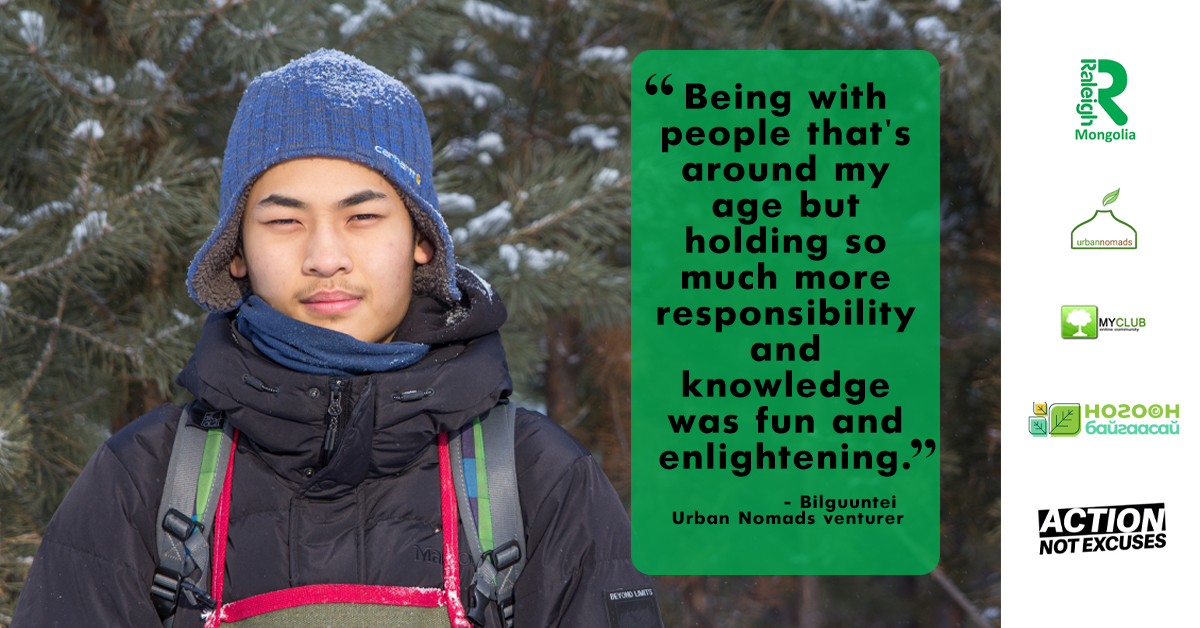
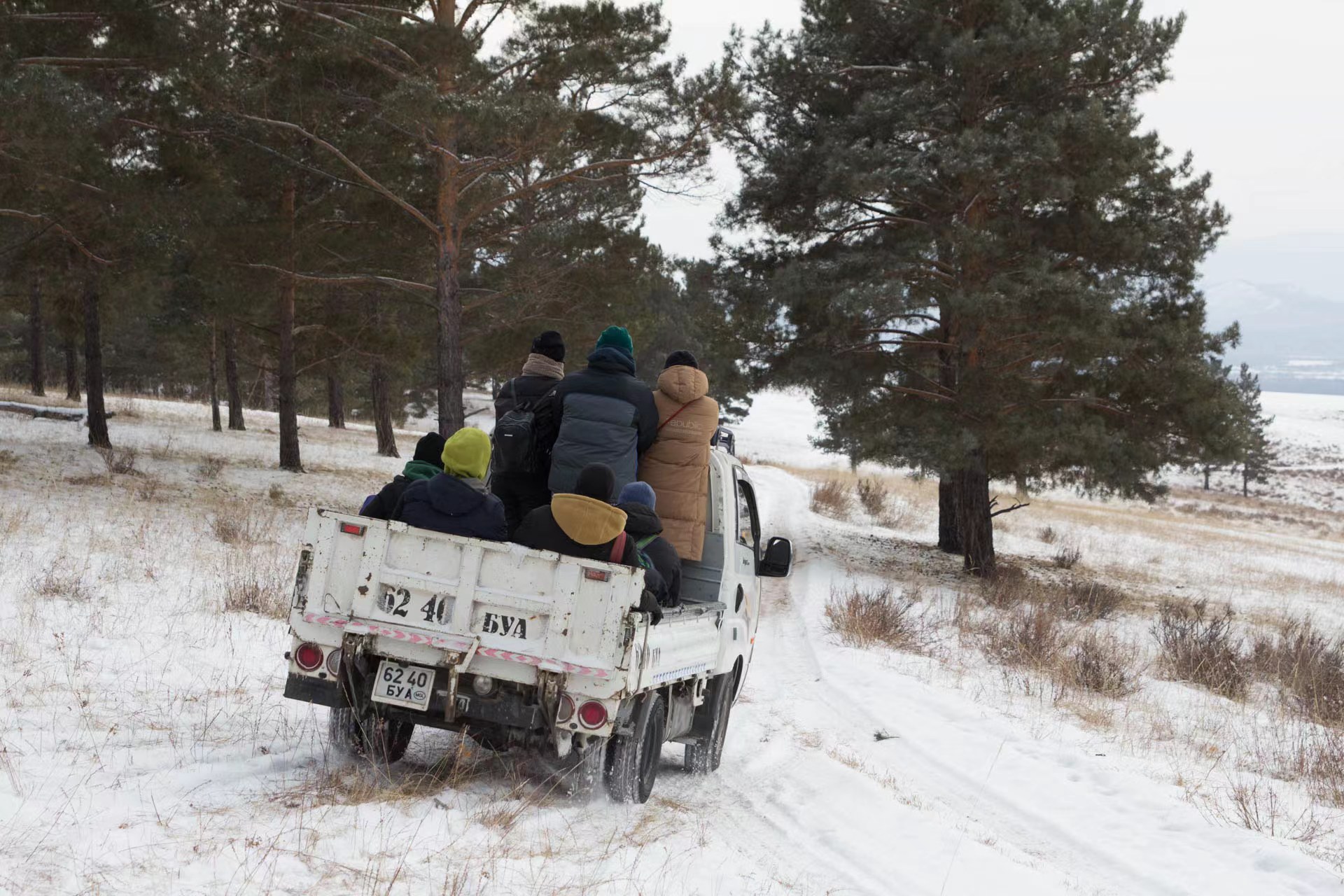
Volunteers getting a ride back to campsite
